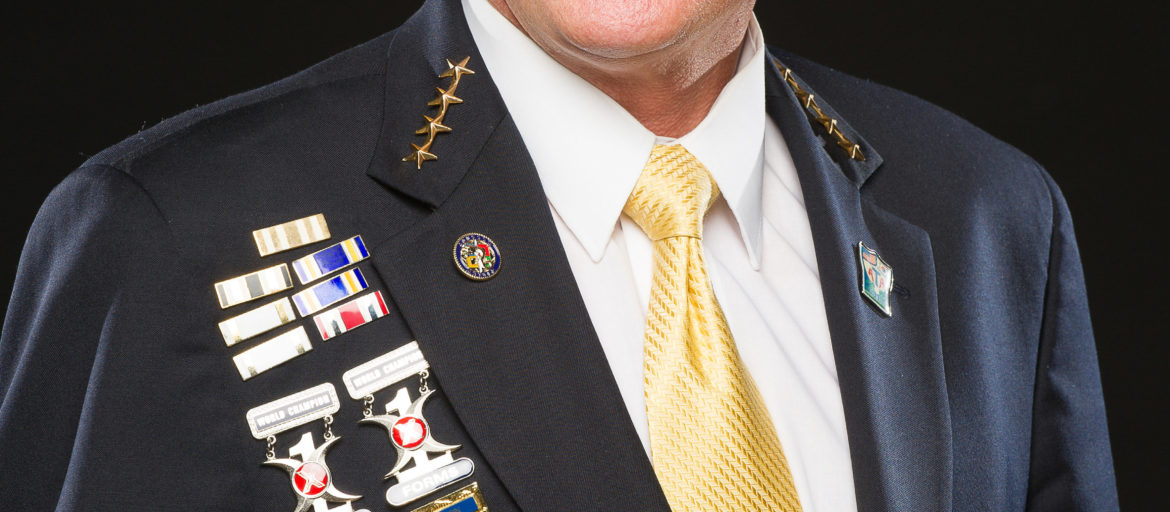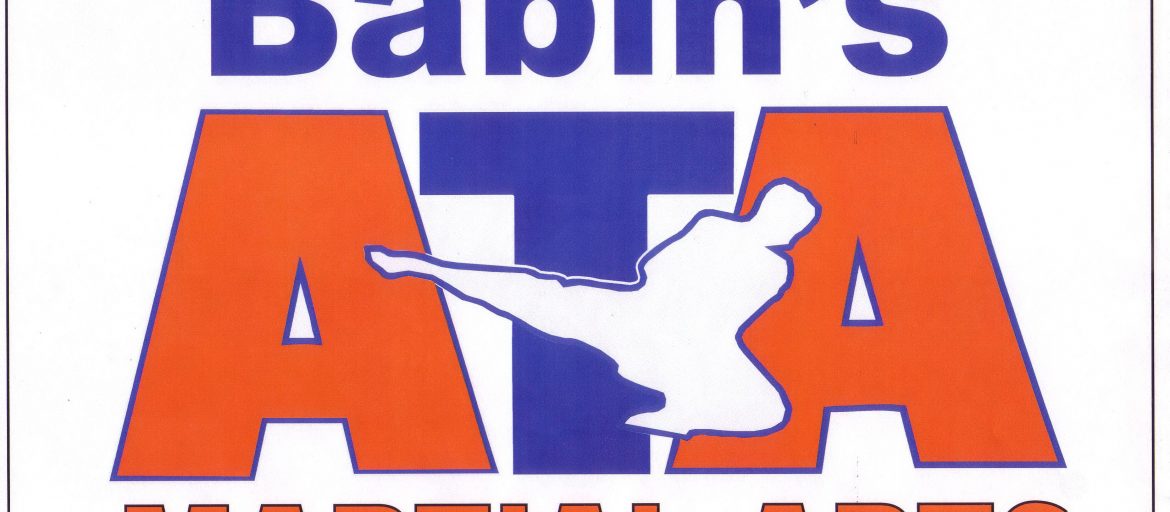Reaching for Excellence
A newsletter for ATA instructors by Senior Master William Babin – July 15, 2009
For the last ten years, the word “leadership” has been the primary cornerstone of
much of our marketing. The funny thing is that we have ALWAYS been about
leadership. Since way before there was a state or world championship award, since way
before KARATE FOR KIDS or TINY TIGERS, since way before PROTECH weapons
training, we have always been about teaching and living leadership. Personally I like
the way the term is used in our marketing these days. Times changes; society changes;
and we need to respond to these changes. And we have with many new programs that
emphasize leadership. As much as I support these new ways to market leadership and
our programs, I think we also need to remember and emphasize the connection between
our oldest traditions and modern leadership.
WE TEACH LEADERSHIP IN THREE WAYS:
1. We talk about it:
Every time we review a life skill like respect, integrity, or goals, we are
giving a leadership lesson. You must be able to LEAD YOUR OWN LIFE FIRST,
before you can be a leader of others. So developing discipline—in addition to the
important social skills like courtesy, self-control, service, and respect—is at the heart of
our leadership concept.
A disciplined black belt leader . . . .
• Attends class regularly
• Assists or teaches classes regularly
• Maintains a healthy lifestyle
• Demonstrates strength of spirit and body
2. We Model it:
Here’s some examples of how you “act like a leader”:
• Attend class regularly
• Never talk in class
• Exercise / practice outside of class
• Demonstrate focus and effort in class
• Compete regularly locally and regionally and nationally
• Demonstrate healthy lifestyle / eating choices
• Behave with respect, courtesy, and self control
• Share your knowledge with others.
• Know and fulfill your rank advancement requirements with no argument
• Support the chief instructor and the academy in all ways at all times
3. We make corrections
Here’s the good part. Talking about leadership and modeling are effective ways
of teaching it. But great instructors know that many approaches are needed to reach all
students more efficiently. Therefore, as black belt leaders, we are responsible for
working with others to some small degree and for enforcing the rules of our school /
organization and the protocols of our martial art. When something is wrong, YOU
correct it. You do not opt out and allow someone else to make the correction. You
should speak up in some way and to some person so you can make a contribution to
moving our organization forward.
How often do you go to your school on the Monday after a tournament and hear
students and instructors talking about all the things that went wrong? You hear stuff like
this:
“Did you see that guy throw his head gear down after he lost?”
“That judge was not watching the competition!”
“Did you hear those parents arguing with the judges over the points?”
And on and on. However, you get little response if you ask this question:
“Did you tell anybody about that?”
Before I go on, please do not misunderstand. We do not need the “Gestapo
discipline squad.” We just need all LEADERS to teach discipline both in their schools,
at camp, at seminars, at tournaments—at all events! And corrections can be made with a
great amount of respect and courtesy. Making a correction is where you implement all
those communication skills and rapport-building techniques in your leadership manual.
Most instructors cover this material in their leadership classes. So read your manual,
study it, go to class, and put this material to use. Ask your chief instructor what is the
best course of action for you.
WARRIOR SPIRIT
“Leadership” is the modern name for it. In more traditional terms, we would say
“warrior spirit.” Whatever you call it, it has those three components just mentioned, and
once you reach the rank of black belt, you are expected to demonstrate “warrior spirit” in
all three ways. It seems so obvious!!!! You are a black belt!!! You should be healthy
and strong!!! You should be in class regularly maintaining the discipline of working with
your instructor. You should be sharing your knowledge with those of less experience.
You should be giving back to the system which created the opportunity for you to be a
black belt and perhaps a champion. That is warrior spirit!!!
Your black belt does not exist outside of the community which presented it. It is
something which is lived everyday in that same community.
What is the leadership example we are following?
Eternal GM H.U. Lee – service to others
Do you remember the soap and candle story? Briefly, the symbolism of the story
is this: the candle and the soap represent the instructor. Soap cleans and makes things
fresh. The candle brings light into the room. But the soap and the candle are both
CONSUMED in the process of living their destiny. BLACK BELT LEADERS are the
same way. They give service to others and give up a part of themselves in fulfilling their
destiny. That is YOUR destiny as a BLACK BELT LEADER. I acknowledge that
there is a big difference between an adult certified instructor school owner and a 10 year
old 2nd degree black belt. But EACH can contribute and demonstrate warrior spirit in a
way that is appropriate for him. The 10-year old may assist in class twice a month and
the school owner may work 80 hours per week. Each has something to give back, even if
it is as little as one hour per week to help another student or as much as 80 hours per
week.
Think about it. Let’s work together and keep the vision alive. My thanks for
your support of this newsletter.
Copyright 2009, All Rights Reserved, William J. Babin
May not be reproduced without written permission of the author.





Karen Fresh On July 20, 2009 at 8:09 pm
Thank you Master Babin for getting back to your writing. You always have such encouraging and practical things to say. We have recently been covering much of this – integrity means living these values inside and outside the school; correction is good, but must be done with much respect especially with the younger students. We want our Tiny Tigers and Karate for Kids to feel the motto: “Every kid’s a winner; every kid is special.” In correction, it is easy to make them feel like losers.
Arlene Eyerman On July 21, 2009 at 3:02 am
Thank you Sr. Master Babin. I too love your writing, it is so inspiring! I agree very much with your talk on correction and I also believe it can and should be done in a way that continues to exemplify leadership qualities. Correction is a teaching tool to help all of us become better and when done with compassion everyone gains from it. Thank you for sharing your wisdom and keeping the vision alive.
Chris Whamond On July 21, 2009 at 2:47 pm
I agree with what Karen said: kids are fragile. An offhand comment can damage them quickly and permanently. We who teach values to others must hold ourselves to a higher standard. Great job on the new blog, sir!
Master Eddie L. Murphy On July 22, 2009 at 4:16 am
Hello Sir, I want to commend you and thank you for your words and your deeds. I tell my student all the time, that I am a student and teacher of the martial arts and life and each day is a lesson learned. You are truely and inspiration to me. I often think that I am alone in my thoughts when reflexting on the old ways. I also know that not everyone teaches the concepts as they were meant to be taught. When I read your message about leadership it struck a cord with me. An it let me know that I am not alone in my thinking or my teaching. Thank you Sir!! I am honorered to say I know you. Keep up the good work. It is always good to know that we are not an island.
Mrs. Sue Mysynuk On August 1, 2010 at 11:50 pm
Thank you Senior Master Babin, I have missed your blogs. You continually refresh our knowledge about what we do. So often we fall into the same trap of believing what “Parents think we do”. In reality, as you point out we do so much more, but get a jaded view especially when we face challenges. Blogs like this one uplift, rejuvenate the small school owner who struggles. Thank you so much, please keep these coming. Sue Mysynuk, Co-Owner, SonFire TaeKwonDo Academy, Richmond, BC Canada